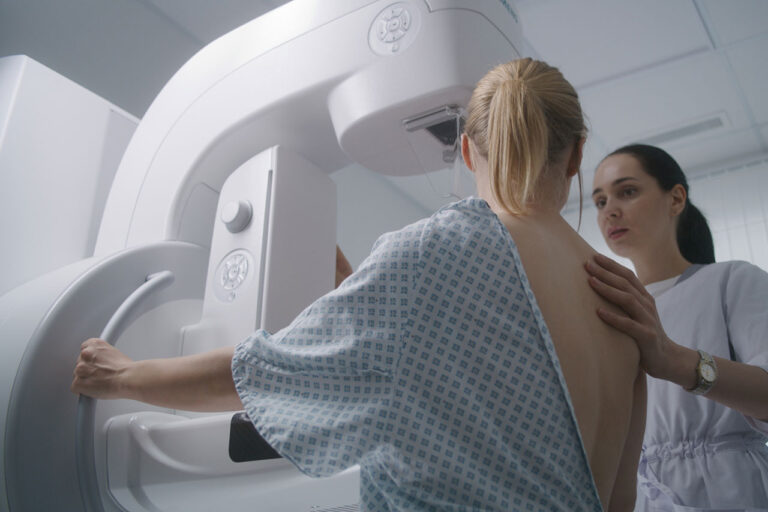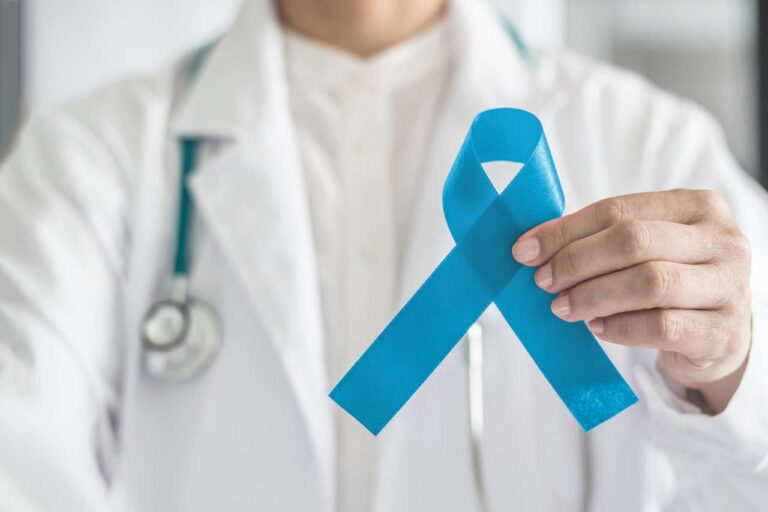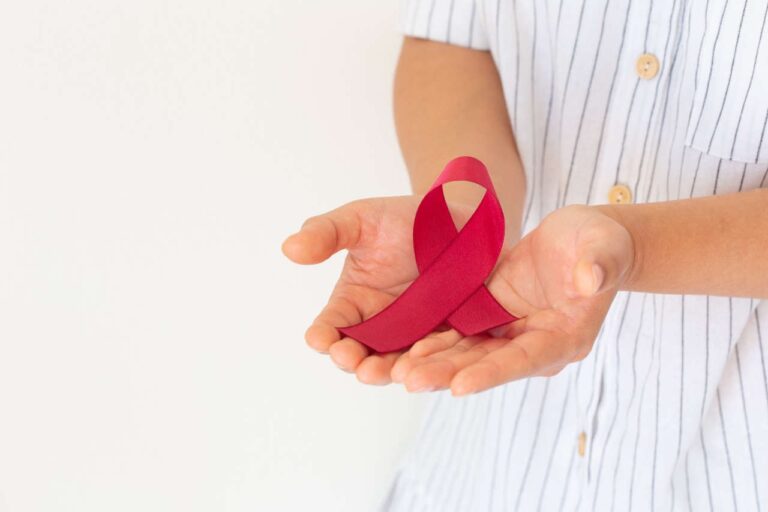
What Is Darolutamide?
Darolutamide (pronounced [DAR oh LOO ta mide]) is also known by the brand name, Nubeqa. It is a type of chemotherapy and an antineoplastic (anticancer) drug that belongs to a class called antiandrogens. It works by counteracting the effects of testosterone, the primary sex hormone produced by males.
What Is Chemotherapy?
Chemotherapy is a cancer treatment in which certain drugs are used to kill cancerous cells. These drugs are usually cytotoxic chemical substances that are toxic to the cells, restrict their growth, prevent their division, and ultimately kill the cells.
Protection From Chemotherapy
Nubeqa is considered to be a hazardous agent and normally, the pills are covered by a thin coating of material. If this coating is damaged, removed, melted, or if the pill is damaged or opened, the chemical inside the pill can cause harm to your skin if you touch it. Therefore, it is important to take appropriate precautions for receiving, handling, storing, administering, and disposing of this medication. Wear gloves if touching this medication or avoid touching it entirely by using the cap of the bottle to scoop up the pill and put it directly into the mouth.
How Is Nubeqa Used?
Nubeqa has been approved by the Food and Drug Administration (FDA) as a first-line agent to treat prostate cancer. When used in conjunction with other treatments, Nubeqa can help to slow the growth of tumors and prevent them from spreading to other parts of the body. Using this drug, men in certain stages of the disease can remain symptom-free for longer periods of time.
Prostate-specific antigen (PSA) tests can be used to determine how well Nubeqa is treating the cancer. Nubeqa is most commonly used in conjunction with a gonadotropin-releasing hormone (GnRH) analog to help the body inhibit the production of certain hormones (like testosterone). Some of the common GnRH analogs are histrelin (Vantas), triptorelin (Trelstar), goserelin (Zoladex), and leuprolide (Lupron Depot).
Available Formulations
Nubeqa is only available as tablets and must be administered orally. The tablets are only available in 300 mg strength. The tablets are oval-shaped, white, and marked with “300” on one side and “BAYER” on the other side. Nubeqa is typically dosed twice a day, and the dose is dependent on the cancer type and severity. Verify the correct dose and frequency with your provider.
Directions for Use
Nubeqa must be taken with food. When taking the pill, swallow it whole; do not open, break, crush, chew, or allow it to dissolve in your mouth.
Missed Dose
If you accidentally miss a dose, take it as soon as possible prior to the next scheduled dose. Do not take two doses at the same time to make up for a missed dose.
Storage
Store pills in a cool, dry place at room temperature and ensure the bottle is tightly closed.
What To Avoid While Taking Nubeqa?
While on Nubeqa therapy, you must follow some precautions. Always tell your physician about any medications you are already taking. Do not take any drug or medicine (even herbals or over-the-counter medications) without prior consent from your physician or pharmacist as they may have significant interactions with Nubeqa. Avoid any kind of immunization or vaccination without prior consent from your physician.
Pregnancy and Nubeqa
This drug is not approved for females. Males with female partners who can become pregnant should use effective contraception during treatment and for 1 week after the last dose as Nubeqa may cause fetal harm.
Side Effects
As with any other medication, you may encounter many side effects while taking Nubeqa. A few things to keep in mind are:
- You may not have all the side effects listed below. Many people may experience little to no side effects.
- The severity of side effects may vary from person to person, so don’t compare your side effects with other people’s experiences.
- Most of the side effects will improve when therapy is discontinued.
- These side effects are easily manageable most of the time, either by readjusting the dose of Nubeqa or using additional medications to treat the symptoms. Consult with your physician or pharmacist to explore available options.
- Do not hide any symptoms; when you feel any discomfort, do not hesitate to tell your physician or pharmacist about it.
Note: This is not a comprehensive list of all side effects. Talk to your doctor if you have questions.
Some of the most common side effects of Nubeqa are:
Pain in the Extremities
Nubeqa has the potential to cause pain in the extremities (hands and feet). Discomfort in the hands, feet, arms, or legs is referred to as carpal tunnel syndrome. If you experience bothersome pain in your hands, feet, arms, or legs, you should consult your physician on how to treat this side effect.
Tiredness and Fatigue
Feelings of extreme tiredness and fatigue may occur. This side effect may appear suddenly and sometimes may not go away with rest. Light and regular exercise is recommended, along with adequate sleep. Start with simple activities like walking, then gradually work up to light jogging, slow running, etc. Fatigue may also be associated with anemia, depression, and anxiety. Find ways to relieve anxiety and depression by engaging in positive activities. Fatigue may sometimes lead to falling and/or fractures. If fatigue symptoms become unmanageable or severe, inform your physician.
Urinary Retention
Urinary retention is the inability to empty your bladder completely. It may present as the need to urinate more frequently, trouble urinating, or urinary incontinence (the inability to control when to urinate). Contact your doctor right away if you notice any signs or symptoms of urinary retention while taking Nubeqa.
Cardiac Complications
There is a risk that Nubeqa may raise blood pressure. This side effect may typically present as a very bad headache or dizziness, passing out, or a change in eyesight. If left untreated, it can potentially lead to blood clots, heart attacks, stroke, venous thromboembolism (VTE) or pulmonary embolism (PE). Symptoms of clots may present as chest pain or pressure, coughing up blood, shortness of breath, swelling, warmth, numbness, change of color or pain in a leg or arm, or trouble speaking or swallowing. Typically these side effects can be controlled with lifestyle changes or medications to treat high blood pressure. While being treated with Nubeqa, blood pressure should be monitored regularly at each office visit.
Bone Marrow Suppression
It is essential to keep up with regular blood tests, especially the complete blood count test (CBC). The CBC blood test is capable of detecting potential side effects of Nubeqa, especially neutropenia (low white blood cells). Neutropenia occurs when you have too few neutrophils, a type of white blood cell which helps our bodies fight off infections. Therefore, having neutropenia would indicate a higher risk of developing serious bacterial and fungal infections. Neutropenia is a very common side effect of cancer patients undergoing chemotherapy.
Other common side effects may include:
- Rash
- Falls and fractures
- Diarrhea
- Nausea
- Rash
- Increased liver enzymes
Precautions
Unless approved by your physician, Nubeqa is generally not recommended for:
- Patients who have an allergy to Nubeqa or any component of the formulation.
- Patients with severe liver or kidney impairment. Dose reduction may be required.
- Patients with a risk of high blood pressure or a history of heart disease. Blood pressure should be monitored regularly.
FAQs
Is Nubeqa a chemo agent?
Chemo drugs are those that are used in the management of various cancers. Nubeqa kills cancer cells and is therefore a chemo agent. It is recommended as a treatment option for various cancer patients.
What is the best time to take Nubeqa?
Nubeqa must be taken with food. When taking the pill, swallow it whole; do not open, break, crush, chew, or allow it to dissolve in your mouth. It is typically dosed twice a day (12 hours apart).
Is Darolutamide available as a generic?
Darolutamide is not available as a generic. It is only available as the brand, Nubeqa.
REFERENCES:
A guide to drug safety terms at FDA. (2012). FDA. Retrieved November 01, 2021, from https://www.fda.gov/media/74382/download
Bailey DG, Dresser G, Arnold JM. Grapefruit-medication interactions: forbidden fruit or avoidable consequences? CMAJ. 2013 Mar 5;185(4):309-16. doi: 10.1503/cmaj.120951. Epub 2012 Nov 26. PMID: 23184849; PMCID: PMC3589309.
Boccon-Gibod L, van der Meulen E, Persson BE. An update on the use of gonadotropin-releasing hormone antagonists in prostate cancer. Ther Adv Urol. 2011 Jun;3(3):127-40. doi: 10.1177/1756287211414457. PMID: 21904569; PMCID: PMC3159401.
Carson C 3rd, Rittmaster R. The role of dihydrotestosterone in benign prostatic hyperplasia. Urology. 2003 Apr;61(4 Suppl 1):2-7. doi: 10.1016/s0090-4295(03)00045-1. PMID: 12657354.
Darolutamide. In: In Depth Answers [database on the Internet]. Greenwood Village (CO): IBM Corporation; 2017 [cited 2021 Nov 9]. Available from: www.micromedexsolutions.com.
Darolutamide. In: Lexi-drugs online [database on the Internet]. Hudson (OH): Lexicomp, Inc.; 2016 [updated 5 Nov 2021; cited 9 Nov 2021]. Available from: http://online.lexi.com
El-Amm J, Aragon-Ching JB. The Current Landscape of Treatment in Non-Metastatic Castration-Resistant Prostate Cancer. Clin Med Insights Oncol. 2019 Mar 7;13:1179554919833927. doi: 10.1177/1179554919833927. PMID: 30872920; PMCID: PMC6407161.
Fizazi K, Shore N, Tammela TL, Ulys A, Vjaters E, Polyakov S, Jievaltas M, Luz M, Alekseev B, Kuss I, Kappeler C, Snapir A, Sarapohja T, Smith MR; ARAMIS Investigators. Darolutamide in Nonmetastatic, Castration-Resistant Prostate Cancer. N Engl J Med. 2019 Mar 28;380(13):1235-1246. doi: 10.1056/NEJMoa1815671. Epub 2019 Feb 14. PMID: 30763142.
Hands KE, Alvarez A, Bruder JM. Gonadotropin-releasing hormone agonist-induced pituitary apoplexy in treatment of prostate cancer: case report and review of literature. Endocr Pract. 2007 Oct;13(6):642-6. doi: 10.4158/EP.13.6.642. PMID: 17954421.
LiverTox: Clinical and Research Information on Drug-Induced Liver Injury [Internet]. Bethesda (MD): National Institute of Diabetes and Digestive and Kidney Diseases; 2012-. Gonadotropin Releasing Hormone (GnRH) Analogues. [Updated 2018 Mar 20]. Available from: https://www.ncbi.nlm.nih.gov/books/NBK547863/
Nubeqa: Uses, dosage, side effects, warnings. Drugs.com. (n.d.). Retrieved November 9, 2021, from https://www.drugs.com/Nubeqa.html.
PDQ Adult Treatment Editorial Board. Prostate Cancer Treatment (PDQ®): Patient Version. 2021 Oct 15. In: PDQ Cancer Information Summaries [Internet]. Bethesda (MD): National Cancer Institute (US); 2002–. PMID: 26389353.
Sciarra F, Toscano V, Concolino G, Di Silverio F. Antiandrogens: clinical applications. J Steroid Biochem Mol Biol. 1990 Nov 20;37(3):349-62. doi: 10.1016/0960-0760(90)90484-3. PMID: 2147859.
Tagrisso.com. 2021. Treatment Option for Certain Types of EGFR+ NSCLC – TAGRISSO® (osimertinib). [online] Available at: <https://www.tagrisso.com/> [Accessed 10 November 2021].What is Nubeqa? (2021). NUBEQA (DAROLUTAMIDE). Retrieved November 01, 2021, from https://www.nubeqa-us.com/what-is-nubeqa












